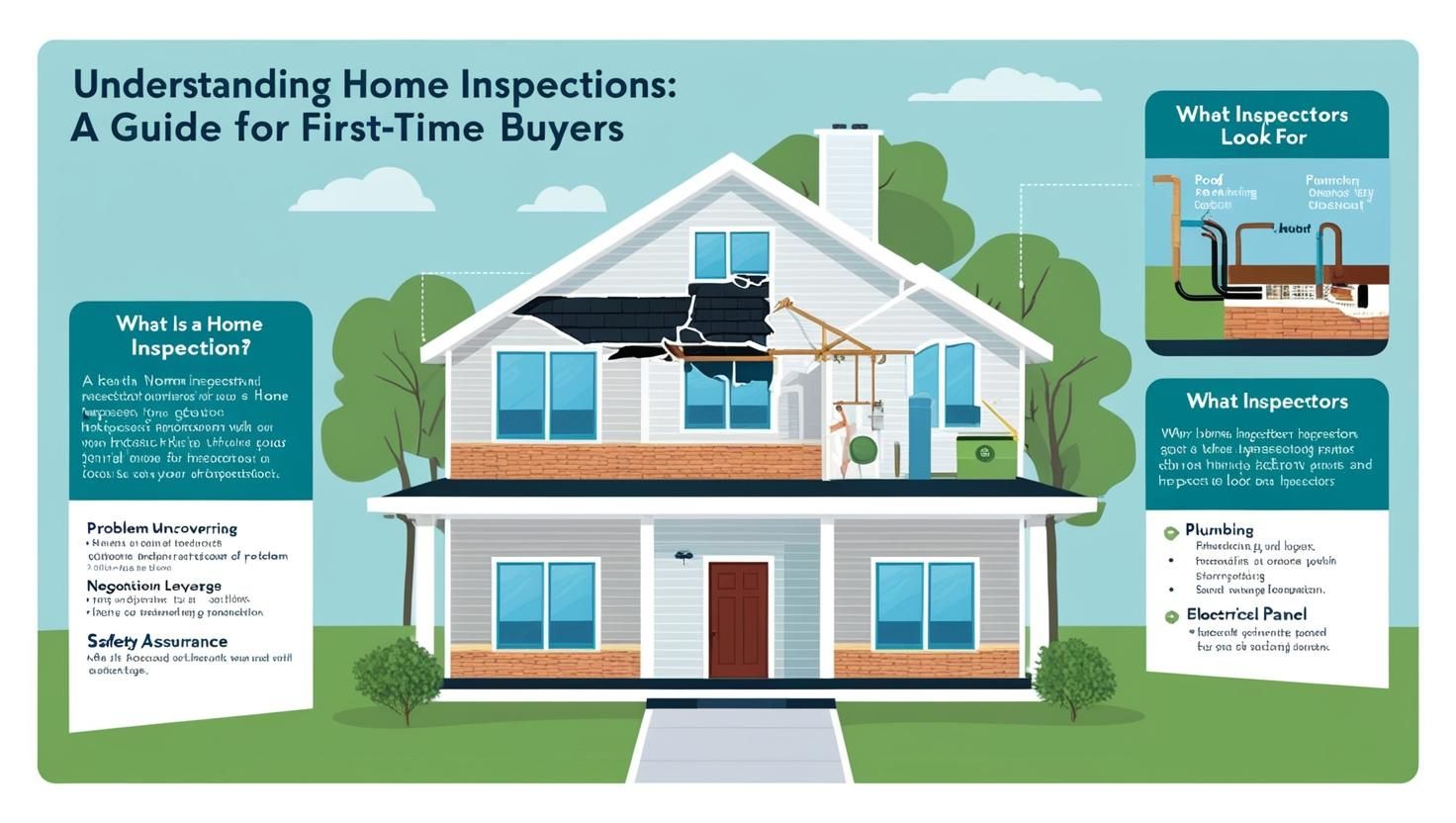Understanding Home Inspections: A Guide for First-Time Buyers

Understanding Home Inspections: A Guide for First-Time Buyers
Buying your first home is an exciting milestone, but it’s also a significant financial investment. One of the most crucial steps in the process is the home inspection. Understanding what to expect can help you make an informed decision and avoid costly surprises down the road. Here’s everything first-time buyers need to know about home inspections.
What Is a Home Inspection?
A home inspection is a professional assessment of a property’s condition, typically conducted by a licensed inspector. It provides insight into the home’s structure, systems, and overall safety, helping buyers identify potential issues before finalizing the purchase.
Why Home Inspections Matter
A home inspection is essential because it:
-
Uncovers hidden problems such as structural damage, faulty wiring, or plumbing issues.
-
Provides negotiation leverage, allowing you to request repairs or price adjustments.
-
Ensures safety and compliance, confirming that major systems meet building codes.
-
Offers peace of mind, helping you move forward with confidence.
What Inspectors Look For
During the inspection, professionals evaluate key areas, including:
-
Foundation and structure – Checking for cracks, settling, or other stability issues.
-
Roof and exterior – Assessing the condition of shingles, gutters, and siding.
-
Plumbing system – Identifying leaks, water pressure issues, and potential pipe damage.
-
Electrical system – Ensuring wiring, outlets, and panels meet safety standards.
-
HVAC system – Testing heating and cooling units for functionality and efficiency.
-
Interior components – Examining walls, floors, ceilings, doors, and windows.
-
Appliances – Evaluating major appliances included in the sale.
How to Prepare for a Home Inspection
-
Attend the inspection to ask questions and get real-time insights.
-
Review the seller’s disclosures to compare with the inspector’s findings.
-
Come prepared with a checklist to ensure all major areas are covered.
-
Be open to minor issues, as no home is perfect. Focus on major concerns that affect safety and livability.
What Happens After the Inspection?
Once the inspection is complete, you’ll receive a detailed report outlining the findings. From there, you can:
-
Negotiate repairs or credits with the seller.
-
Proceed with the purchase as-is if the issues are minor.
-
Walk away if significant problems make the home a bad investment.
Final Thoughts
A home inspection is a vital step in the homebuying process, offering valuable insights into a property’s condition. By understanding what to expect and how to use the inspection report effectively, first-time buyers can make confident, informed decisions.
Are you preparing to buy your first home? Let’s connect and ensure you’re fully prepared for every step of the journey!
Categories
Recent Posts












